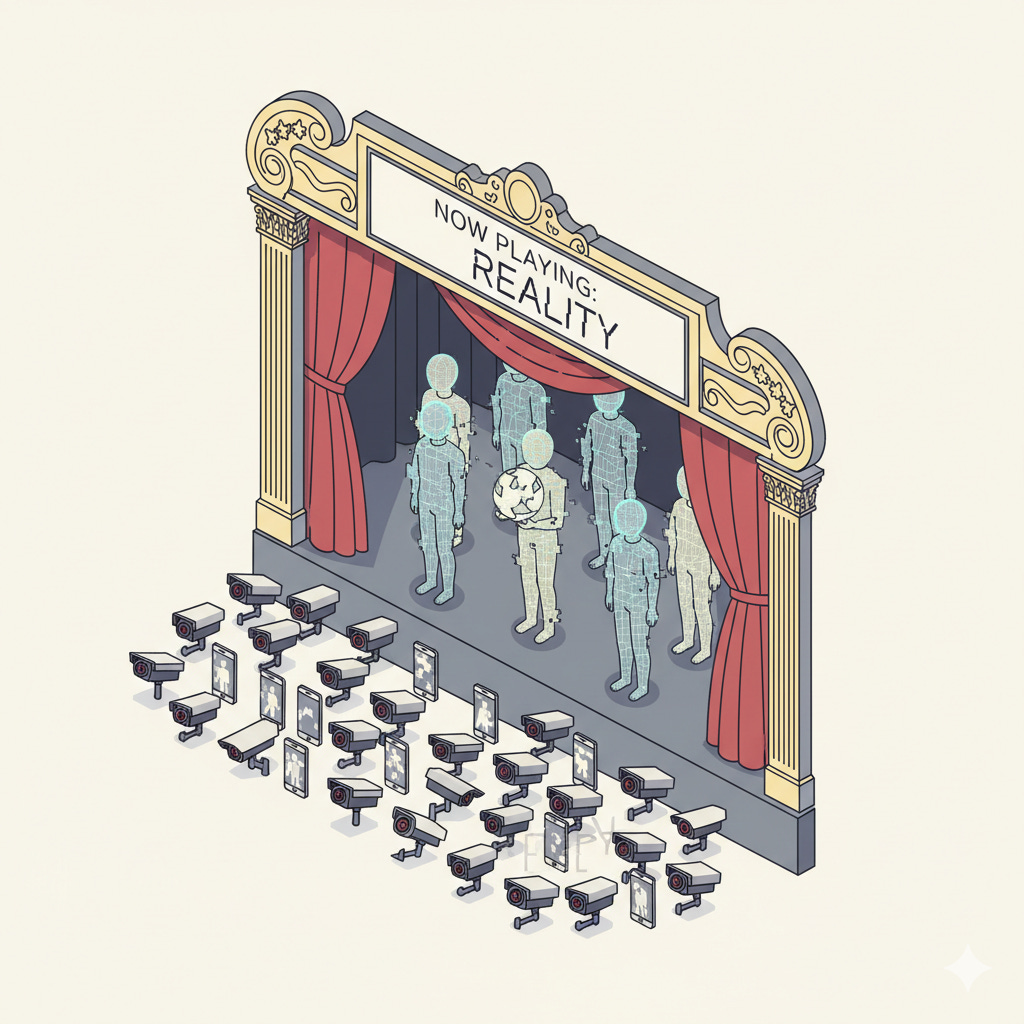Week 40: Fake Actors Sign Deals, AI Learns Caste System, Sora Makes Everyone Spielberg
THE SYNTHETIC REALITY SHOW
Welcome to the episode where nothing is real and everything’s for sale. AI actresses are booking gigs, your security camera footage costs $2, and anyone can deepfake themselves into a blockbuster. Meanwhile, AI learned to discriminate like a pro and OpenAI burned through $13.5 billion teaching machines to pretend they’re human. The show must go on, even if nobody knows who’s real anymore.
THE CASTING CALL FROM HELL
Fake Actress Books Real Jobs as AI-generated Tilly Norwood lands talent agents, proving Hollywood can’t tell silicon from flesh anymore.
EVERYONE’S A DIRECTOR NOW
Sora 2 Turns Phones Into Studios with OpenAI’s app creating 10-second clips complete with dialogue, letting anyone star in their own deepfake. Your Doorbell Footage Costs $2 as Anker pays Eufy users for surveillance videos, turning privacy into a yard sale for AI training. Copyright Gets a Checkbox when Sam Altman adds opt-in controls to Sora, like putting a lock on an already-robbed bank.
THE UGLY TRUTH HOUR
ChatGPT Learns Caste Discrimination by changing Dalit surnames in applications, proving AI absorbs society’s worst habits along with its data. OpenAI Burns Money Like Kindling with $13.5 billion losses despite $4.3 billion income, while Altman globe-trots begging for more compute power.
Curious what it all adds up to? Let’s break it down. Keep reading below.
Tell Me More
Hollywood’s New Hiring Problem. AI actress Tilly Norwood fooling talent agents marks the end of “fake it till you make it” — now you can fake it forever. Studios salivating over actors who never age, never complain, and never demand royalties. The real actors’ union nightmares just began. Soon every casting call will need a Turing test. The twist? Audiences might prefer the fake ones — they’re designed to be perfect, after all.
Every Phone a Film Studio. Sora 2 democratizing deepfakes means your nephew can put you in compromising videos faster than you can say “that’s not me.” The 10-second limit won’t last — give it six months before feature-length fake films flood every platform. Authentication dies when creation becomes this easy. The copyright controls are theater — like asking pirates to check a box promising they won’t pirate. Reality just became optional.
Privacy’s Garage Sale. Anker buying doorbell footage for $2 reveals the true price of privacy: less than a cup of coffee. Hundreds of thousands sold their front door views to train AI that will probably surveil them better later. We’ve monetized our own surveillance state. The buyers know something sellers don’t: that footage is worth thousands per video to the right AI company. Digital sharecropping at its finest.
Programmed Prejudice. ChatGPT changing Dalit surnames proves AI doesn’t just reflect bias — it amplifies it with computational efficiency. Training on human data means inheriting human hatred, now scalable and automated. India’s caste system just got a silicon upgrade. No amount of “alignment” fixes what’s baked into the training data. We’re teaching machines our worst impulses and acting surprised when they learn.
Thirteen Billion Dollar Bonfire. OpenAI losing $13.5 billion in six months while Altman begs for compute globally shows the economics of fakery: astronomical. They’re burning GDP-level money to build systems that lie convincingly. This isn’t a business model — it’s a potlatch ceremony where value destruction proves status. The bubble’s not popping; it’s inflating so fast it’s warping spacetime. When your losses exceed some countries’ budgets, maybe reconsider the mission.
Below The Fold
“To be human is to be an animal that needs witnesses,” especially when everything digital might be fake. post.substack.com
Palantir makes new hires read improv books, because surveillance companies need spontaneity too. The Generalist
AI startup’s secret to 800+ customers: following curiosity, not growth hacks. Revolutionary. Next Play So
“AI Agent Era” threatens economic theory by doing human jobs for pennies. Economists confused. The Leverage
Film critic argues the real star of PTA’s new movie is a 1991 Nissan. Cars have more soul than AI actors. Max Read
Cooking “spicy pork, eggplant, and basil” becomes survival tactic during new parenthood chaos. What To Cook
Partisan bumper stickers influence driving behavior. Even cars are politically polarized now. Frontiers in Political Science
Cryptographer asks if governments can buy weakened encryption standards. Spoiler: probably. Daniel J. Bernstein’s Blog
Deep dive into 1917’s “Miracle of the Sun” at Fatima, the “final boss of paranormal experiences.” Astral Codex Ten
Space solar power remains expensive dream despite “endless sunlight” pitch. Physics wins again. CleanTechnica
Looking Ahead: The synthetic reality show continues next week with more fake actors, more real discrimination, and more billions burned teaching machines to lie. Stay tuned to find out what else isn’t real.
Thanks for reading Briefs — your weekly recap of the signals I couldn't ignore. This week that meant reading 904 stories from 48 sources. You're welcome.


